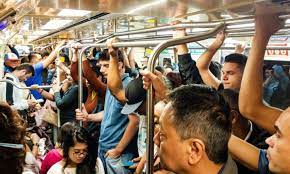A new study conducted by the Urban Institute and Robert Wood Johnson Foundation has found that one in five adults with limited access to public transit avoid health care visits due to transportation difficulties.
The research showed that transportation barriers to health care disproportionately affect people of color, low-income individuals, those with disabilities, and individuals without household access to a vehicle.
Over 20% of adults without access to a vehicle who live in neighborhoods with fair or poor access to public transit reported forgoing health care due to difficulty finding transportation. Skipping health care visits due to transportation barriers can negatively impact long-term health.
The study suggests that public transit accessibility is crucial for promoting equitable access to health care and improving health equity.


